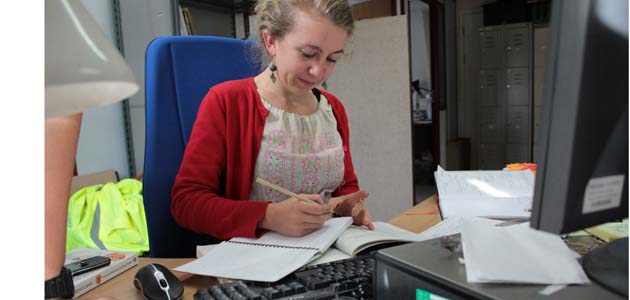A day without oil
On Monday 4th October I tried to go on an oil fast. I failed. Why?

I embarked on my ‘oil free’ day at the invitation of Operation Noah, a Christian organisation working on climate change. Their newly launched ‘Carbon Exodus’ challenges the churches to recognise the impact that oil dependency has on the earth’s wellbeing and to shift towards a zero carbon future. As programme manager of Quaker Peace & Social Witness’s (QPSW) sustainability and peace programme, I thought it would be an innovative and challenging way to engage myself and others with the issues.
I embarked on my ‘oil free’ day at the invitation of Operation Noah, a Christian organisation working on climate change. Their newly launched ‘Carbon Exodus’ challenges the churches to recognise the impact that oil dependency has on the earth’s wellbeing and to shift towards a zero carbon future. As programme manager of Quaker Peace & Social Witness’s (QPSW) sustainability and peace programme, I thought it would be an innovative and challenging way to engage myself and others with the issues.
The extraction of oil comes with huge environmental and social costs, as the recent disaster in the Gulf of Mexico and continuing leaks in the Niger Delta clearly demonstrate. And the burning of oil, like other fossil fuels, means that we are already experiencing global temperature rise to a degree that is having devastating effects on ecosystems, human lives and livelihoods. Despite this we continue to use oil at a rate that is unsustainable. The black gold is running out, and sooner rather than later we will be forced to find other ways of fuelling our lives.
I failed, because oil is everywhere. I couldn’t escape the truth that almost everything I did involved oil, despite the fact that I was making an extra special effort to avoid it.
As usual I cycled to work, and as usual it was a beautiful start to the day. Except, of course, my bike is oiled, my fluorescent jacket is made of synthetic fibres, which are made from refined oil and probably imported on trucks, planes, or boats fuelled with oil and the roads are made of oil. I turned on my computer, which is encased in plastic – derived from oil – and powered by electricity, which usually uses oil in the production process. I sat on a chair and walked on a carpet made of synthetic materials in a building whose walls are coated in oil-based paint.
I was forced to realise the enormity of the challenge. We are oil dependent. To change this we need to radically change the way we live, both as individuals and as a global community.
As Quakers know, however, just because a challenge is big, it doesn’t mean that there is nothing to be done. I did find things to do that reduced the oil in my day. I (mostly) only wore clothes made of natural fibres (such as cotton and wool) and second hand. I already don’t eat meat (grain-based meat production has a high ecological cost and uses oil for the fertilisers and transport of grain around the world), but I made a particular effort to eat locally sourced, organic food. I found that the restaurant at Friends House is actually very good at this. I didn’t watch TV or use my laptop in the evening. Instead I read my book and chatted to people. If you want to make the biggest difference to your oil intake, don’t fly, try to use public transport, reduce your meat consumption and eat seasonally, use less electricity and buy less.
I didn’t buy anything on Monday, except food, because if oil is in almost everything then we need to buy less stuff and value that which we do have more. In doing so we challenge the system that continuously markets things to us, and help to build an alternative. I realised that it’s still good to fail sometimes though – it makes you realise how much work there is to be done.
To try your own oil fast see www.operationnoah.org. To find out more about QPSW’s Sustainability and Peace programme see www.quaker.org.uk/sustainability.
You need to login to read subscriber-only content and/or comment on articles.
